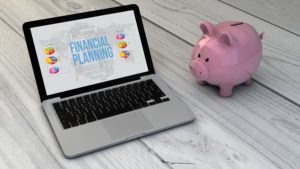
Financial planning is critical if you want to manage your money and get debt under control.
Jump to article content:
- Why is Financial Planning important
- Calculate your Disposable Income
- Techniques for better Money Management
- How to Save
Need advice about Debt? Give us a call on 0800 077 6180 or complete the form below to speak to one of our experts
Why is Financial Planning important?
If you are struggling financially one of the main reasons for this may be that you are not in control of your money. You may not have a good understanding of how much you have coming in each month and how it is being spent.
Given this it is unsurprising that you never seem to be able to get on top of your debts. However it does not have to be this way. There are a few simple financial planning techniques which will help you get back in control.
These include working out what your disposable income actually is, leaning how to manage your money throughout the month and even how to start saving.
How to calculate your Disposable Income
The building blocks of sound financial planning are understanding how much money you have coming in each month and the budget you need to cover your regular living expenses.
Once you understand the total of your monthly income and living expenses you can calculate your disposable income by deducting your expenses from your income.
It is the amount you have left over from your income which can be saved or used to buy non essential items or repay the debt that you owe.
Your disposable income is the amount you have left over from your monthly income after all your essential living expenses are accounted for.
Techniques for better Money Management
Having a good understanding of your income, living expenses and disposable income on paper is all very well. However when it comes to the real world managing your money on a daily basis can be a challenge.
How do you make sure that you always have enough cash available to pay your priority debts such as your mortgage or rent, utility bills and Council Tax. In addition how should you plan for expenses which do not happen every month such as car repairs?
There are some practical things that you can do to help you manage your spending. One of these is keeping a money diary.
How to Save
Having some money saved will help you remain in control of your finances. Rather than having to borrow in an emergency you can dip into your savings.
Savings also allow you to buy things more cheaply because you do not have to pay interest on credit. It is therefore really important to have savings to fall back on if needed.
Having said that saving is never easy particularly if your income is limited. However there are some techniques which will help you put a little aside each month even if you are on the tightest of budgets.
Saving can help repay debt faster. This is because you can offer lump sum settlements to your creditors in return for them writing off a percentage of your debt.
Arrange a call with a Debt Management Expert
Privacy Policy
Your information will be held in strictest confidence and used to contact you by our internal team only. We will never share your details with any third party without your permission.


